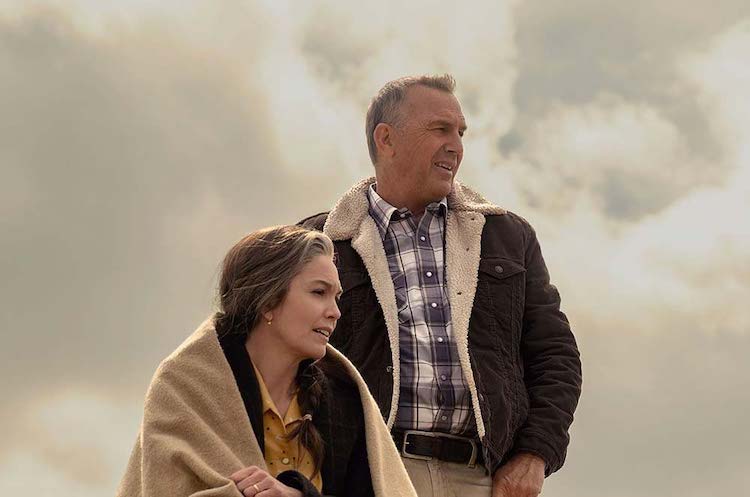The following questions and answers are excerpted from a conversation that followed the NBR screening of Let Him Go.
How did you find the book this film is based on, and what attracted you to adapting it?
Thomas Bezucha: The novel “Let Him Go” was written by Larry Watson, who I’ve been a fan of for well over twenty years. He wrote a book called “Montana 1948,” which I also loved, and just by being a fan of his I found this book. And it was actually a confluence of things: it was reading this book just coincidentally within the same week when I saw a documentary called Dear Zachary, which is a very painful documentary about loss. It tells the story of a couple, who are grandparents, who have lost their son. And it just really resonated with me. And that gave me an idea of how to adapt “Let Him Go.”
He’s not afraid of playing opposite a strong lady, and I really admire him for that.
There are so many iconic actors in the film. How did you go about casting? Did you have particular people in mind as you wrote?
TB: I don’t have particular actors in mind as I write, actually. And that’s just because the vast majority of the time, the person who plays the part doesn’t end up being who you think it’s going to be originally, as you’re writing! That’s just the nature of the business. But I never would have thought Diane Lane, for instance, would be interested – let alone agree to play – a grandmother. I was fortunate enough to have lunch with her and talk to her really early on, and she felt so passionately about the character, and representing her age, and wanting to have gray hair… and to, you know, look as much as possible as a Montana rancher would look in ’63. And off of the strength of casting her, we approached Kevin [Costner]. And I still can’t believe he did it. But you know, there’s a thing with Kevin – and I hope I’m not telling tales out of school – but it occurred to me one day when we were on set, when I was looking at him and watching him interact with Diane, and he’s so iconic… he’s such a ‘guy running around with guns,’ and he’s so accomplished. But if you look at his body of work, and I think this is a less obvious take on it, he’s really always been dedicated to telling stories that feature strong women, consistently. And I would joke to Diane that this was The Bodyguard Part 2! You know, he’s her safety net out on the road. He definitely does not believe she’s going to get that kid, but he has to be there when she doesn’t. I think it’s an unusual thing for really iconic leading men to lean into strong female characters. He’s not afraid of playing opposite a strong lady, and I really admire him for that.
For moments when there isn’t dialog, how did you direct that? It felt very naturalistic to have breaks in the conversations among characters.
TB: I like an awkward pause! I definitely do. I think if there are pauses, I think most of them were probably written into the script. Is there a scene in particular that comes to mind for you?
I think about when they’re leaving in the car, you know they’re setting off on the journey, and up to that point too there’s just not a lot of dialog. And then of course the deeper into the film you go, the more characters you get.
TB: They drive and then they go up to that hillside. They don’t have an argument about him going to the son’s grave; he says, “you don’t know when you’ll be back,” and she says, “I know what I’ve lost.” And he says something like, “sometimes that’s all that life is,” and he leaves, and she’s left sitting in the car. Maybe I rely too much on subtext, but I kind of… I feel like that’s how people actually talk. It’s interesting to me when you have to lean in a little, as an audience member, to interpret what somebody means… as opposed to, you know, dialog like, “you killed my brother and now I’m gonna kill you.”
When you are telling a story within a genre, how do you balance audience expectations for that genre vs. organic character impulses?
TB: I like genre, but then I like to tweak a bit. I don’t know– it’s just what’s interesting to me. That’s partly what drew me to Let Him Go. It had this super simple genre story, but then I could sort of pursue the other stuff that was interesting to me. Which is, you know, watching her make a coffee cake or whatever it is!

